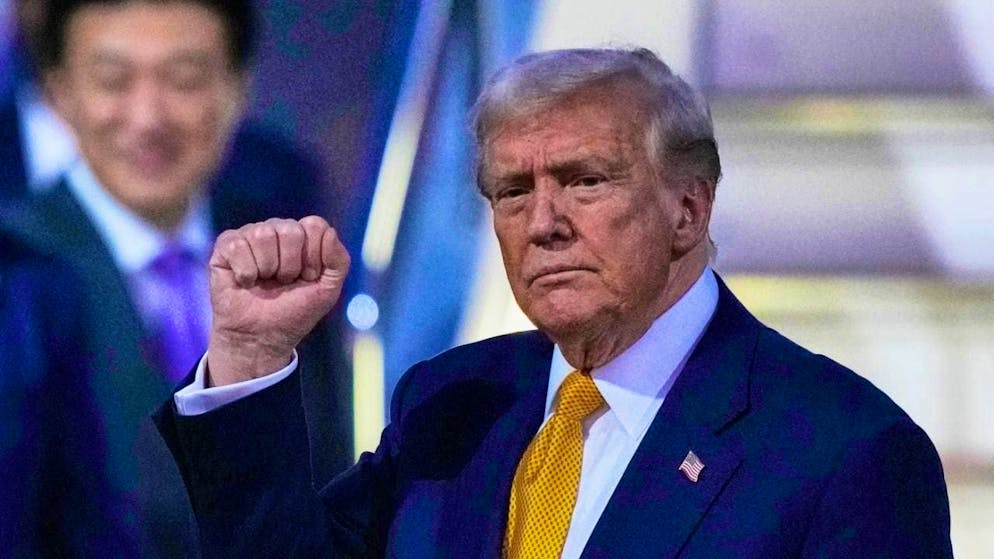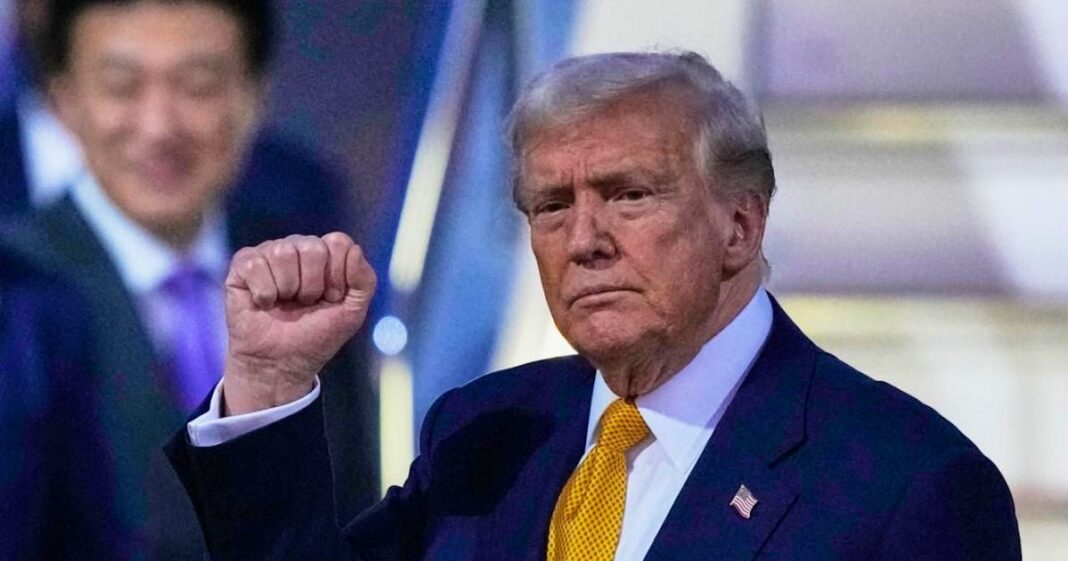Donald Trump: Aspirations for the Vice Presidency and Beyond
A Surprising Admission
During a recent press conference in Tokyo, former President Donald Trump made headlines with his remarks. He stated that, according to his interpretation of the law, he would be eligible to run for the office of Vice President following his current presidential term. However, Trump quickly added, “It wouldn’t be right.” This admission hints at his complex relationship with the U.S. political landscape and his ongoing ambition to remain a key player in American politics.

The 22nd Amendment Explained
At the heart of the discussion around Trump’s potential future in politics is the 22nd Amendment of the U.S. Constitution. Ratified in 1951, it limits any person from being elected to the presidency more than twice. This means Trump’s aspirations for a third term are constitutionally barred. Nonetheless, he has not shied away from hinting at his interest in the 2028 presidential election, often observed sporting caps that read “Trump 2028.” Such gestures raise eyebrows and fuel speculation about his intentions.
Political Strategy Behind the Vice Presidency
While Trump has hinted at his eligibility for the Vice Presidency, some of his allies have floated a different idea. The speculation suggests that if he were to run for VP, he could potentially orchestrate a situation where the elected president would step down shortly after taking office, allowing Trump to reclaim leadership. This unconventional strategy speaks to the cunning political maneuvering for which Trump has become well-known.
Constitutional Challenges Ahead
For Trump to realize a dream of a third presidency, a constitutional amendment would be required. Such a process is exhaustive, needing a two-thirds majority in both the House of Representatives and the Senate, along with the approval from three-quarters of state governments. Given the current polarized political climate, this seems an uphill battle. Nevertheless, speculations continue to swirl around Trump’s future in the political arena, igniting debates among constituents and political analysts alike.
Observers and Analysts Weigh In
Political observers are keenly following Trump’s every move, undertaking analysis on what his remarks could mean for both his supporters and detractors. As he navigates these waters, the political machinations behind the scenes become intricate narratives that shape public perception and policy discussions. His hints at a potential political comeback, whether as a VP or in some other capacity, cannot be ignored and are continuously under review.
The Impacts on the Republican Party
Trump’s declarations also signal potential ramifications for the Republican Party. If he were to actively seek a vice presidential nomination, it could stir a mix of excitement and concern within party ranks. Some might view his candidacy as a unifying figure capable of galvanizing the base, while others might worry about the divisiveness that often accompanies his public persona.
In this constantly shifting political environment, Trump’s statements about the Vice Presidency—and the possibility of a return to power—underscore the complexities of American politics today. As the 2024 election approaches, the implications of his ambitions will undoubtedly play a significant role in shaping the next chapter of U.S. governance. Whether Trump’s intentions are as bold as they seem or more a reflection of the ardor entangled in his political identity may ultimately determine his legacy.



